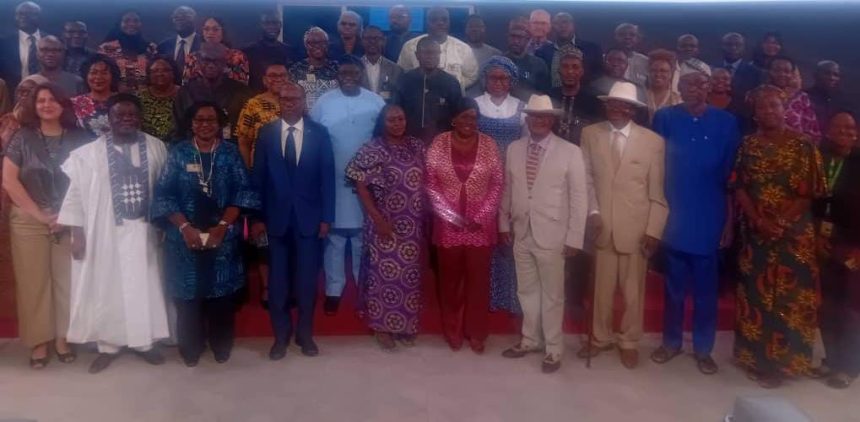By Funmilayo Adeyemi
The National Open University of Nigeria (NOUN) and the Commonwealth of Learning (COL) have called on regulatory agencies to develop structured policies and guidelines for the implementation of micro-credentialing within the education system.
The Vice-Chancellor of NOUN, Prof. Olufemi Peters, made this call while declaring open a capacity-building workshop on micro-credentialing in Abuja on Tuesday.
Micro-credentialing is transforming education by focusing on specific skills and competencies over lengthy formal qualifications.
The News Agency of Nigeria (NAN) reports that the event, themed “Developing Micro-Credentials Transfer in a Digital Age”, was supported by COL and the Regional Training and Research Institute for Distance and Open Learning (RETRIDOL).
Peters noted that the emergence of micro-credentials is no longer a distant concept, but a current reality reshaping the future of education.
“Micro-credentialing is an innovative approach that is reshaping the landscape of education and professional development.
“It emphasises skills and competencies over extended formal education, offering flexibility and alignment with industry demands.
“It provides a viable alternative to traditional degrees, often developed in collaboration with industry stakeholders, they enhance employability and make learning more accessible and tailored to individual needs,” he stated.
He added that micro-credentials can be “stacked” over time to form full certifications or degrees, supporting lifelong learning and continuous upskilling in a dynamic job market.
While acknowledging ongoing challenges in recognition and certification, Peters expressed confidence in the pivotal role micro-credentials will play in the future of professional education.
He urged regulatory bodies, especially the National Universities Commission (NUC), to take the lead in formulating clear national definitions, standards, and objectives aligned with the country’s educational goals.
Earlier, the Director of RETRIDOL, Prof. Christine Ofulue, outlined the significance of micro-credentials in enhancing learner mobility, personalised learning, and the cross-border recognition of qualifications.
“This workshop is timely and reinforces RETRIDOL’s leadership in this domain. Our region must establish its own definitions, frameworks, and strategies to ensure relevance,” she said.
Also speaking, Prof. Jane-Frances Agbu, Adviser on Higher Education at COL, noted that micro-credentials are essential tools for rapid upskilling and reskilling in today’s fast-paced, technology-driven job market.
On his part, Dr Roland Kouakou, Director of Education, Science and Culture at the ECOWAS Commission, stated that the region had begun taking steps to align with global trends.
He expressed optimism that micro-credentials could democratise access to education and better prepare learners for the future of work.
The President of the Open, Distance and e-Learning Association of Nigeria (ODeLAN), Prof. Francis Egbokhare, stressed the need to move beyond policy formulation towards practical implementation.
He underscored the importance of drawing on insights from a comprehensive COL review of global micro-credentialing practices.
The workshop attracted participants from Ghana, The Gambia, Sierra Leone, Cameroon, and Nigeria. (NAN)












